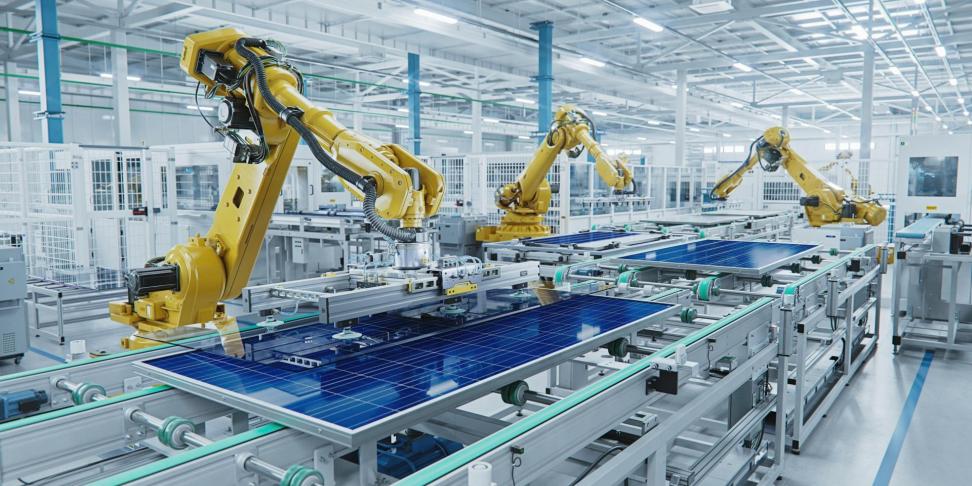The ROI of factory automation

Manufacturers face increasing pressure to reduce costs, improve efficiency, and maintain high-quality standards while staying competitive. Factory automation is one of the most effective solutions, offering higher productivity, lower operational costs, and improved precision. However, many companies hesitate due to the initial investment required.
Understanding the Return on Investment (ROI) of factory automation is essential for making informed decisions. This blog explores how automation improves financial performance, the key factors influencing ROI, and why the transition to automation is a long-term competitive advantage.
For companies focused on cost reduction, check out our related article: 5 proven strategies for cost reduction in manufacturing.
What is ROI in factory automation?
The ROI of factory automation refers to the financial return a company gains compared to the investment made in automation technologies. This includes direct cost savings such as reduced labor expenses and indirect benefits such as higher product quality, fewer defects, and better scalability.
A successful automation strategy should deliver measurable improvements in:
- Labor efficiency – Automation reduces reliance on manual labor, minimizing costs while maintaining production output.
- Production speed – Robots and automated systems work faster and more consistently than human workers.
- Error reduction – Automated systems improve accuracy, reducing material waste and rework.
- Energy savings – Smart automation optimizes energy use, cutting operational costs.
By evaluating these factors, manufacturers can estimate how quickly automation investments will pay off.
Key factors that influence the ROI of factory automation
The ROI of factory automation depends on several factors, including:
1. Labor cost reduction
One of the most immediate benefits of automation is the reduction in labor costs. While automation does not eliminate the need for human workers, it optimizes workforce allocation by allowing employees to focus on higher-value tasks.
For industries with high labor costs or labor shortages, automation provides a significant financial advantage. Technologies such as robotic assembly lines ensure consistent output with minimal human intervention.
2. Increased production capacity & efficiency
Automated factories operate continuously, increasing throughput and meeting higher demand without requiring additional labor shifts. Smart manufacturing solutions such as factory automation systems allow companies to scale production efficiently.
When combined with smart manufacturing solutions, automated systems adapt to real-time production data, further optimizing workflows and minimizing downtime.
3. Quality improvement & defect reduction
Defective products increase costs and harm a company’s reputation. Automated inspection systems and industrial machine vision detect defects earlier in the process, ensuring consistent quality and reducing waste.
Fewer defects mean lower recall risks, reduced material waste, and higher customer satisfaction, all of which contribute to higher profitability.
4. Reduced maintenance & downtime
Predictive maintenance, enabled by automation and IoT sensors, helps manufacturers prevent unexpected breakdowns. By leveraging real-time monitoring and predictive analytics, businesses can minimize machine downtime and avoid costly repairs.
For an in-depth look at data-driven manufacturing efficiency, check out: Lean vs. Smart manufacturing: What’s the difference?
5. Energy & resource optimization
Modern automation systems optimize energy consumption, reducing power usage in lighting, heating, and cooling systems. Automated scheduling ensures machines operate only when needed, reducing wasted energy costs.
Additionally, virtual factory solutions allow manufacturers to simulate and test production improvements before implementation, reducing unnecessary resource consumption.
Is factory automation worth the investment?
While the initial costs of automation can be significant, the long-term benefits make it a strategic investment for most manufacturers. Companies that invest in automation not only achieve lower operational costs but also gain a competitive edge through higher efficiency and adaptability.
By implementing industrial automation, businesses can scale production, improve product quality, and meet industry demands with greater flexibility.
Maximizing ROI with the right automation strategy
The ROI of factory automation depends on strategic implementation, proper integration, and leveraging advanced technologies. By focusing on cost reduction, quality improvement, and efficiency gains, manufacturers can achieve a strong financial return on their automation investments.
At VDL Steelweld, we provide tailored automation solutions that help businesses streamline production and maximize ROI.
Interested in optimizing your factory’s efficiency?
Contact us today to explore our automation solutions and discover how we can help you achieve maximum ROI in manufacturing.
